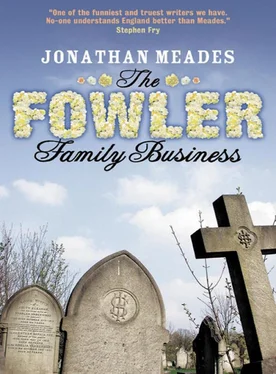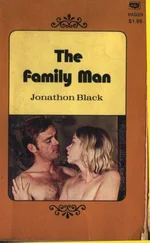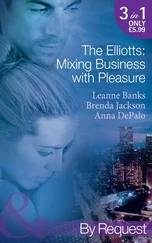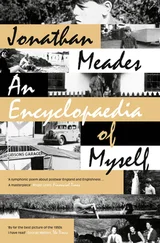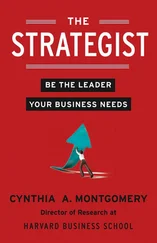Curly didn’t know that Naomi’s mother had only returned to the family home in Hatch End fourteen months previously after a three-year liaison with a wallpaper salesman in Cape Town which ended when Louis died in the bedroom of a client’s house during a demonstration of new gingham prints and Louis’s daughters brought an action to remove Naomi’s mother from the green-pantiled Constantia bungalow which was now theirs. Nor did he know that fourteen of Naomi’s mother’s aunts, uncles and first cousins had died at Sobibor and Treblinka and that there is no familial recovery from such thorough murder.
But those in the Classic Rooms of the Harrow Weald Hotel that squally afternoon of 25 August 1968 who had evaded or who had survived industrial genocide were in no mood to oppose the patently decent, patently grateful young man and were inclined, too, to conjoin with him in his celebration of the tanned blond undertaker whom Naomi so obviously loved and had chosen to make her own family with far away, on the corresponding south-eastern heights of the Thames Basin – there, see them there, through the rolls of weather, places we’ve never been to, goyland, where the JC means Jesus Christ, where yarmulkes are rarely seen, where it may not even be safe to practise psychiatry, where a vocabulary of hateful epithets is nonchalantly spoken, unreproached, in the salons and golf clubs. There are sixty-five synagogues north of the Thames; there are five south of it, and about as many delis. No ritual circumcisers, either – a lack which had not even occurred to Curly Croney, which duly went unmentioned although in later years Naomi’s father, Jack Lewis, would sometimes jocularly greet Henry as ‘the man the mohel missed’. Henry took this in good spirit and was unfazed by the overintimate coarseness, because it was so obviously true – no one would expect a strapping, big-boned blond with almost Scandinavian features to have been circumcised, and, besides, his exaggerated respect for his parents extended to his parents-in-law. It was a respect which Curly illustrated by referring to an incident Naomi had mentioned to him.
On their third date, one Sunday in May, Henry had called for Naomi in his sports car and had driven her first to the Air Forces Memorial at Runnymede to admire ‘a properly tended garden of remembrance – tidiness equals respect’, then to see the brash rhododendron cliffs at Virginia Water, and on to a riverside restaurant where they ate a chateaubriand steak because it was to share and by such gestures would they unite themselves. They gazed at each other oblivious to river, weir, swans, pleasure craft, laburnums, magnolias (past their best in any case). Henry was explaining the massage procedure that must be applied to a body to alleviate rigor mortis in order to make it pliable for embalming. Naomi leaned across the table, clasped his hands and asked, poutingly, ‘Who’s your ideal woman?’
Henry was puzzled by this question. And whilst Naomi’s pose – eyes fluttering and index finger tracing the line of her lips – might have encouraged most young men to achieve the correct answer Henry contorted his face in effortful recall as though the quarry were some irrefutable slug of information like the chemical formula for formaldehyde CH 20 rather than a softly smiling ‘You’ or ‘You are’. If Henry realised that he was being asked to provide proof of the compact between them he was too shy to acknowledge it.
Suddenly his face cleared. He’s got it, she thought to herself, warm with the anticipation of an exclusive compliment. He reached inside his jacket, withdrew his wallet and removed from it a photograph which he handed to her. It showed a middle-aged woman, her face partly obscured by the hair blown across it by a gust. Naomi looked at it, as though this was some sort of trick. Then she waited for the clever pay-off.
‘That’s my mother,’ said Henry. ‘My ideal woman.’
Curly, whom Naomi regarded as a child, was blind to Naomi’s hurt when she told him of that day. He supposed that this vignette was an affirmation of her pride in her future husband’s filial loyalty and he recounted it thus, causing his audience to wonder why he should wish to slight the bride at the expense of her mother-in-law. Was he trying to ingratiate himself, in the belief that to be Jewish is to be mother fixated? Was this an expression of covert anti-Semitism? No, it was just gaucheness tempered with Curly’s steadfast idolatry of Henry. Do you know what Henry did the day after they got engaged?
The guests awaited the revelation of a passionate gesture, of some act characterised by irrationality and violins. With his father’s permission, since it was his father who had bought it for him on his twenty-first birthday, Henry traded in his two-seater, open-topped, wire-wheeled MGB for a four-seater Rover 2000 saloon ‘because we’re going to be a family and a sports car’s not suitable. Not safe either.’
‘I really liked the MG, Henry,’ murmured the bride, nuzzling her husband of an hour’s neck, ‘all that fresh air can get a girl quite excited.’
‘The Rover’s got a sun-roof,’ he replied, tersely. ‘All you’ve got to do is wind it.’
Henry had, anyway, made the right car choice in the opinion of Curly’s audience. Every one of them was beaming at him. He might not have made a theatrically romantic gesture but he had expressed a long-term commitment by buying, by investing in , a vehicle renowned for its craftsmanship and reliability, a vehicle with two extra seats to fill, in time and with God’s blessing, two extra seats which seemed to predict a nursery gurgling.
Curly finished his speech with the wish that: ‘Next time I offer a toast to these two I hope it will actually be to these three – but, for the moment, I give you Naomi and Henry.’ Naomi and Henry – their names were multiplied in the gaily decorated Classic Rooms. Curly sat down and Henry gripped him around the arm, patting his shoulder, nodding in satisfaction, a trainer whose dog has had its day. That speech had cemented their brotherhood. Naomi’s mother said what others must have thought when she muttered: ‘Who’s getting married here I want to know? Henry, ob-vi-ous-ly, but who to? I’d never heard it was the best man’s role to declare his love for the groom. What did he mean by these three? Is he expecting them to adopt him?’ And so on.
Curly would not, at that time, have admitted to loving Henry. Affection, respect, gratitude, guilt – these were the sentiments he allowed. And a sort of relief, an inchoate conviction that without someone whom he could take for granted he would not have recovered from the loss of Stanley. He did not delude himself: Henry was more of a brother to him than Stanley could ever have been, while they were young, at least, and the age gap told. He knew that had Stanley lived, reckless, selfish, apple of his father’s wandering eye, Henry would not have been his brother and that Henry would have taken no notice of him, that Henry would forever have been trailing Stanley. His guilt sprang from his having been blessed by Stanley’s death, from having been liberated by it, from having been dragged from the shadows by a true soulmate. It was as it was meant to be, according to fortuity and fatidic law. He was thankful that Henry had stuck with Stanley for all of Stanley’s life for otherwise he would not have inherited Henry. But why had Henry stuck by his childhood friend? Is friendship, too, merely a matter of habit? Was Henry so desperate that he was prepared to suffer Stanley’s routine disloyalty and infidelity ? Henry was a loner, unquestionably, and not by choice: his parents’ age was, no doubt, one of the causes – they were not quite of the generation of his contemporaries’ grandparents, but they were of a generation whose children had been born before the war; Henry’s father was eighteen years older than Mr Croney whose laments for Stanley included the one that ‘we grew up alongside him’.
Читать дальше
